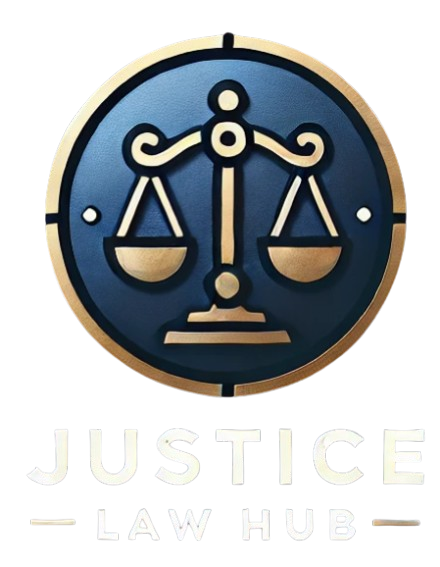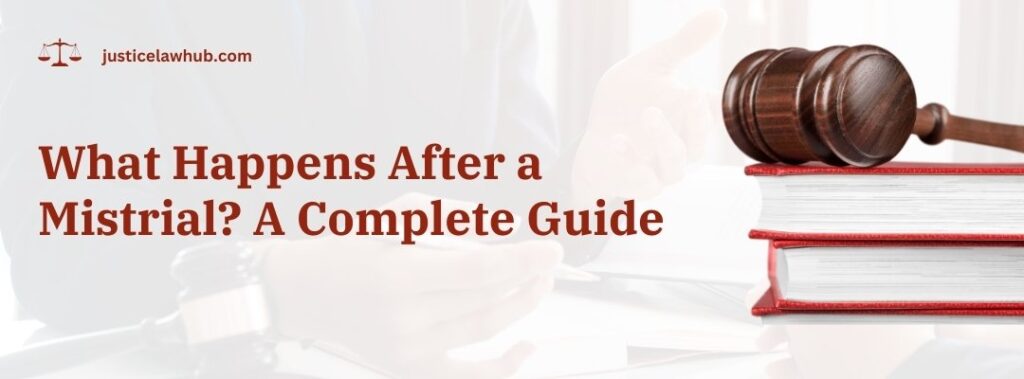When a judge declares a mistrial, it can leave everyone in the courtroom—defendants, plaintiffs, lawyers, and even jurors—wondering: what happens after a mistrial?
This situation is more common than many people realize. A mistrial doesn’t mean the case is over, but it also doesn’t automatically mean a new trial will begin. The path forward depends on the specific facts of the case, the type of mistrial, and the decisions of prosecutors or judges afterward.
In this guide, we’ll break down exactly what happens after a mistrial, the possible outcomes, and what it means in criminal cases versus civil trials.
What Is a Mistrial?
Before diving into what happens after a mistrial is declared, it’s important to understand what a mistrial actually is.
A mistrial occurs when a trial is invalid or cannot proceed to a proper verdict. The judge declares it because something has gone wrong that prevents a fair outcome.
Common reasons for a mistrial include:
- A hung jury (when jurors cannot reach a unanimous decision).
- Juror misconduct, such as discussing the case outside of court or being biased.
- Procedural errors, like evidence being wrongly admitted.
- Attorney misconduct, such as improper statements during trial.
- External events, like illness of a juror, lawyer, or judge that halts the proceedings.
Once declared, the case essentially resets, leaving the big question: after a mistrial, what happens next?
Mistrial: What Happens After
When a mistrial is declared, the outcome depends on whether it was a criminal case or a civil case.
In criminal cases:
The prosecution may decide to retry the case, negotiate a plea deal, or dismiss charges entirely.
In civil cases:
The parties may agree to a settlement, retry the case, or drop the lawsuit.
The decision largely rests with the prosecuting attorney (in criminal trials) or the parties and judge (in civil cases).
Related Post: Can My Phone Records Be Subpoenaed Without My Knowledge
What Happens After a Mistrial in a Criminal Case?
This is the most pressing concern for defendants and their families. What happens after a mistrial in a criminal case can significantly affect someone’s freedom and future.
Here are the main possibilities:
1. Retrial of the Case
The prosecution often chooses to retry the case. This means starting over with a new jury and presenting the evidence again.
- If the mistrial was due to a hung jury, a retrial is common.
- If the mistrial resulted from misconduct or improper procedures, the defense may argue against retrying.
2. Dismissal of Charges
Sometimes, after a mistrial, the judge or prosecutor may decide to dismiss charges completely. This is more likely if:
- Evidence was mishandled.
- Key witnesses are unavailable.
- A retrial would violate the defendant’s constitutional rights.
3. Plea Bargain Negotiations
Instead of going through another lengthy trial, both sides might agree to a plea deal. This can reduce sentencing for the defendant while giving the prosecution a guaranteed resolution.
4. Double Jeopardy Concerns
Many people wonder: does a mistrial mean double jeopardy applies? The answer is usually no.
Double jeopardy prevents someone from being tried twice for the same crime after a valid verdict. But since a mistrial has no verdict, retrials are generally allowed.
After a Mistrial, What Happens in Civil Cases?
Civil cases deal with lawsuits over money, contracts, injuries, or other disputes—not crimes. So, what happens after a mistrial is declared in a civil case differs from criminal trials.
Possible outcomes include:
- New Trial: The judge may schedule another trial with a new jury.
- Settlement: Both parties may prefer to avoid the costs of another trial and agree to settle.
- Case Dismissal: In rare instances, the case may be dismissed if serious errors occurred.
For plaintiffs and defendants in civil cases, the financial stakes are high, and mistrials can prolong stress, expenses, and uncertainty.
The Role of the Judge and Prosecutor After a Mistrial
Once a mistrial is declared, judges and prosecutors play a key role in deciding next steps.
- Judge’s Role: The judge may dismiss charges, approve a retrial, or guide settlement discussions.
- Prosecutor’s Role: In criminal cases, the prosecutor decides whether to retry the case or drop it.
Ultimately, the future of the case depends on the balance between justice, fairness, and practicality.
What Happens After a Mistrial Is Declared Due to a Hung Jury?
One of the most common causes of a mistrial is a hung jury. This happens when jurors can’t agree on a unanimous decision, even after extended deliberations.
So, what happens after a mistrial in a criminal case caused by a hung jury?
- The prosecution almost always has the right to retry the case.
- However, prosecutors may reassess whether they have enough evidence to win in a second trial.
- Sometimes, they may drop charges or offer a plea deal instead of retrying.
Hung juries highlight the difficulty of reaching unanimous verdicts, especially in complex or high-profile cases.
Related Post: Home Page Napoli Shkolnik: A Complete Guide to the Law Firm’s Online Presence
How Long After a Mistrial Can a Case Be Retried?
The timeline depends on the jurisdiction and complexity of the case.
- Criminal cases: Retrials often occur within weeks or months, depending on court schedules and availability of witnesses.
- Civil cases: A retrial may take longer, especially if settlement negotiations are ongoing.
Importantly, the defendant remains under indictment until charges are dismissed or retried.
Emotional and Financial Impact of a Mistrial
While legal consequences are critical, it’s worth acknowledging the human side of mistrials.
- For defendants: A mistrial means ongoing uncertainty about freedom, reputation, and financial stability.
- For victims and families: It can feel like justice is delayed or denied.
- For the legal system: Mistrials increase costs, strain resources, and can affect public confidence in fairness.
That’s why both sides often seek closure quickly after a mistrial is declared.
Famous Examples of Mistrials
To better understand mistrial: what happens after, let’s look at real-world examples:
- Bill Cosby (2017): His first trial ended in a mistrial due to a hung jury. Prosecutors retried him, and he was convicted in the second trial.
- Rodney King Case (1992): Juror issues and community pressure highlighted how mistrials can impact public trust.
- Blagojevich Trial (2010): Former Illinois governor’s corruption trial ended in partial mistrial; retrial led to conviction.
These cases show that mistrials don’t end legal battles—they simply extend them.
Key Takeaways: What Happens After a Mistrial?
To summarize:
- A mistrial means the case is invalid and no verdict is reached.
- After a mistrial, what happens depends on whether it’s a criminal or civil case.
- In criminal cases, options include retrial, dismissal, or plea deals.
- In civil cases, outcomes may involve settlement, retrial, or dismissal.
- A mistrial does not usually mean double jeopardy applies.
- The emotional and financial toll of mistrials can be heavy for all involved.
Conclusion
So, what happens after a mistrial? The answer isn’t simple—it depends on the circumstances, the law, and the choices made by prosecutors, judges, and attorneys.
For defendants, it means uncertainty and possible retrial. For plaintiffs or victims, it often means more waiting before resolution. And for the justice system, it represents a setback that must be addressed carefully.
While mistrials can feel like an ending, they’re more often a pause in the pursuit of justice. Understanding the process helps those involved prepare for the road ahead—whether it leads to a new trial, a settlement, or dismissal.



